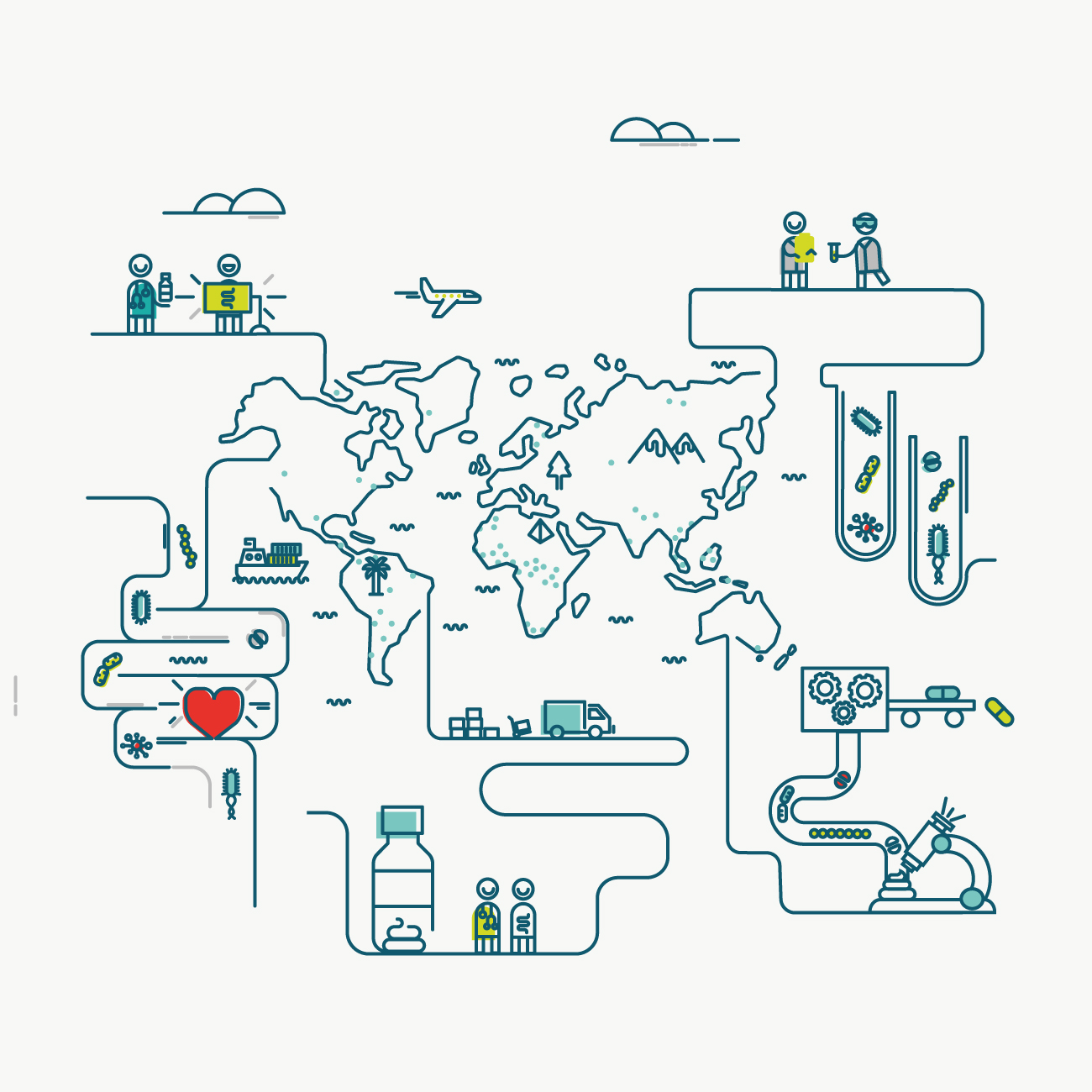
OpenBiome announces the expansion of its mission to catalyze microbiome research on a global scale.
The pioneering biobank will radically increase scientists’ understanding of the microbiome by developing unique research tools and an inclusive platform that harnesses the diversity and therapeutic potential of the microbiome.
To meet its expanded mission, OpenBiome is assuming leadership of the Global Microbiome Conservancy (GMbC) and welcoming it as a flagship program. The GMbC—a nonprofit initiative founded by scientists Mathieu Groussin, PhD and Mathilde Poyet, PhD at the Massachusetts Institute of Technology (MIT)—is dedicated to conserving and providing broad access to the global diversity of the human microbiome.
OpenBiome will scale the GMbC microbiome collection—already the most globally representative biobank of its kind—and make it available to researchers worldwide.
The GMbC collection currently comprises samples donated by more than 1,000 individuals from underrepresented communities around the world, including hundreds of new strains with no known sister taxa and many bacteria that were previously considered unculturable. These research materials are critical for understanding how human health is affected by microbiomes across a wide range of diets, lifestyles, and environments, as well as ensuring that a wider range of communities will benefit from microbiome science.
“Building this collection is an exciting next step in leveraging OpenBiome’s unparalleled expertise in biobanking and microbiome science,” said Julie Barrett O’Brien, OpenBiome’s Chief Executive Officer. “We will have an outsized impact on public health by providing researchers with the microbes, data, and tools they need to make exciting new discoveries.”
Over the past decade, microbiome-based therapies have emerged as a transformative field of medicine. Under OpenBiome’s guidance, fecal microbiota transplantation (FMT) has developed from a fringe medical practice to the standard of care for antibiotic-resistant C. difficile infections and is being used in clinical trials to treat a wide range of indications including metabolic, neuropsychiatric, and autoimmune disorders. But much of this progress has been limited to urban communities in high-income, industrialized countries.
OpenBiome will help fill this critical gap by building research capacity in underrepresented and under-resourced regions, continuing the GMbC’s commitment to its research consortium. This global network of 80+ scientists, spanning more than 30 countries and headed by its academic leaders Groussin and Poyet, has contributed its expertise to build the GMbC program and collection. By providing training, tools, and connections, OpenBiome will grow the GMbC consortium and deepen exploration of the microbiome.
“Global representation is at the heart of a thriving microbiome research ecosystem,” said Katya Moniz, PhD, Director of the Global Microbiome Conservancy Program at OpenBiome. “We have a unique opportunity to accelerate science worldwide while supporting researchers in under-resourced contexts so that they can be at the forefront of this incredibly exciting and important field.”
